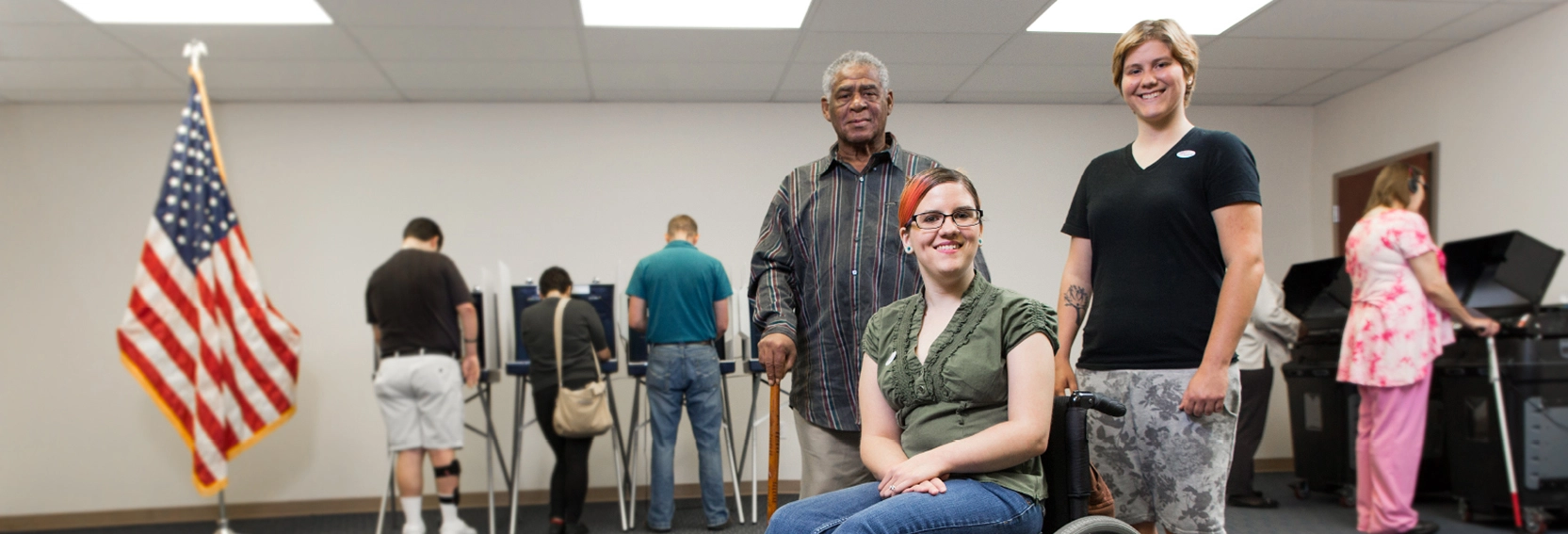During an emergency such as a hurricane or a public health crisis, there is not only a need to focus planning and response efforts on disability-specific aspects of the emergency, but also to seek the input and expertise of people with disabilities in the process. If elected, how would your office work to ensure that state emergency planning (i.e., health testing, sheltering and safety of congregate living populations, et cetera) is inclusive of Florida’s disability communities? How will you work to ensure that communications and other information from the state is accessible to people with disabilities?
As a Trained Emergency Manager I will continue to be involved in the Emergency planning for the Whole state and I take very seriously all residents specially the ones with impediments to move or respond to emergencies.
In the event that the global pandemic lasts through the current school year or possibly beyond, how would you work with state educational officials to ensure that relevant state and federal educational guarantees for students with disabilities are adhered to, and do you believe that it is possible to appropriately educate students with disabilities remotely or through virtual education?
I believe that education is not the same for everyone so in some cases the classes for some disabilities must be in person. We can take the necessary precautions and deliver quality education for our disabled students.
In recent years, the state legislature has devoted much attention to the issue of mental health service delivery and crisis response systems in state public schools. In your opinion, how should the state work to ensure that the mental health needs of its students are met, and what reforms are needed to provide adequate mental health and crisis response services in our schools? When, if ever, is it appropriate for schools to initiate involuntary examinations for its students under the Florida Mental Health Act (“the Baker Act”)?
We need to have mental health professionals in the school system to respond to teacher referrals of students and identify those needs ass soon are detected.
It has become apparent that COVID-19 spreads most easily in institutional and congregate living arrangements. If elected, how would you work to prevent the unnecessary institutionalization of persons with disabilities and reduce other forms of congregate living in favor of serving persons with disabilities in their own homes or the community both during and after the current pandemic? What will you do to ensure that people with psychiatric disabilities are afforded the services they need to succeed in their own homes and communities and avoid psychiatric hospitalization?
Even in institutional environments people with infectious can be helped with the proper personal protection equipment. there is no excuse to abandon our mentally disabled individuals.
Even before the pandemic began and massive job losses ensued, 2.7 million Floridians were uninsured. Research shows that under normal circumstances the uninsured have much greater challenges accessing health care, and these disparities are exacerbated during a health crisis. Do you support expanding the state’s Medicaid program to cover adults (19-64) with income up to 138 percent of the federal poverty level to provide more than 800,000 Floridians with coverage? Why or why not? Do you support proposals to utilize a “block grant” or “per capita cap” approach to contain Medicaid spending? Why or why not?
We need to reform our health system. the Health is a necessary service and the same way other industries are regulated the Health need to regulated and audited because the cost in Hospitals are breaking the pocket of patients. The cost must be commensurate with the service and we need a fair system so everyone has access to health care.
Despite the protections of the Americans with Disabilities Act (the ADA) and related state and federal laws, the unemployment rate of people with disabilities continues to be much higher than that of people without disabilities. If elected, how would you work to promote meaningful opportunities for supported employment and competitive, integrated employment of people with disabilities in the state? What policies do you advocate to support the academic and career success of students with disabilities, especially for students from historically marginalized communities and backgrounds?
First we need to develop test to determine the jobs that people with disabilities can do and help place those individuals in jobs that they can perform to an acceptable level. We also need to educate the employers that people with disabilities can be great employees.
Nationwide it is believed that there are more than 750,000 people with disabilities who are incarcerated, and many of these individuals face substantial barriers to reentry when they complete their sentences and return home. What reforms do you support to ensure that returning citizens with disabilities have the resources, skills and mental health supports to succeed when they complete their sentences?
We need to develop programs that can educate and prepare disabled inmates for jobs and a regular and crime free life in their communities.
What is your experience working with people with disabilities or alongside disability-led organizations? Please provide examples of your experience addressing and responding to disability issues or describing disability advocacy efforts you have participated in either personally, professionally, or while in elected office if applicable. If elected, how would you integrate the input and perspectives of people with disabilities in your office’s planning and legislative efforts?
I have worked with government agencies that service people with disabilities in Puerto Rico and prepared Emergency operations plans for day centers for Elderly people and disabled plus as a disabled Veteran I know the dificulties that the Veterans administration help solve.
